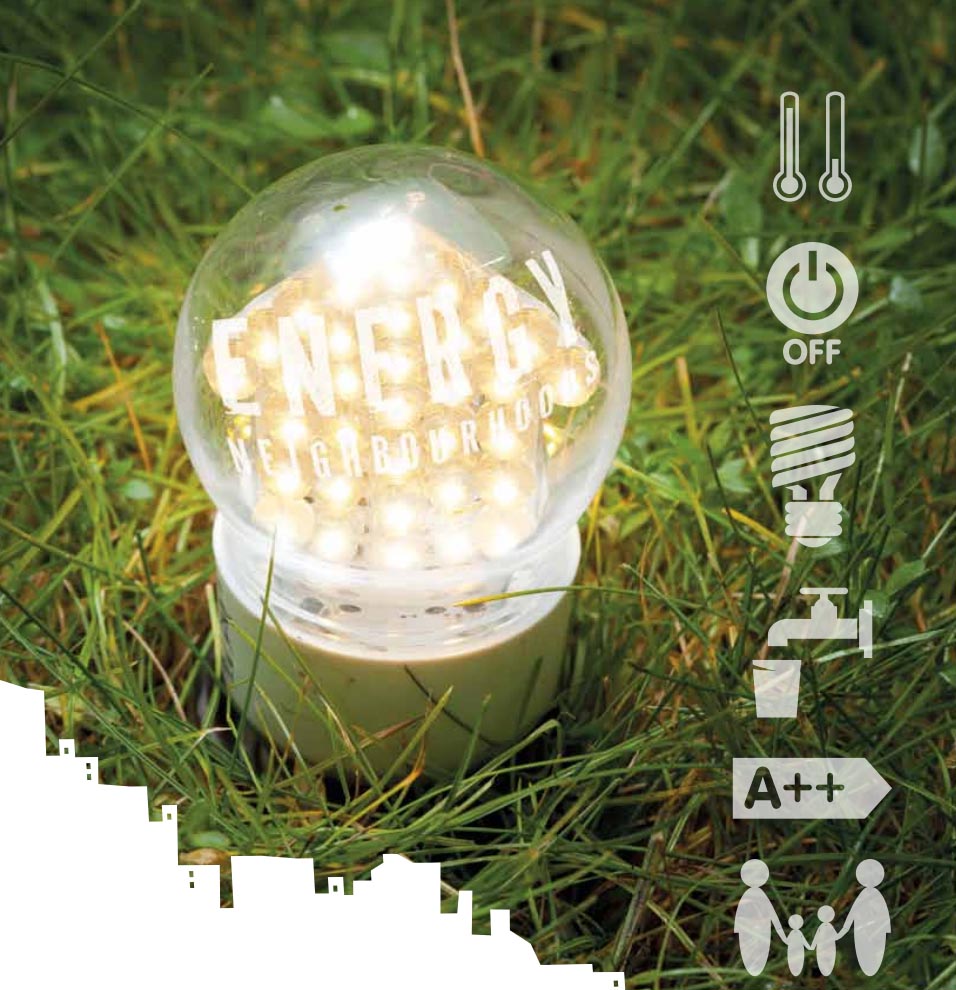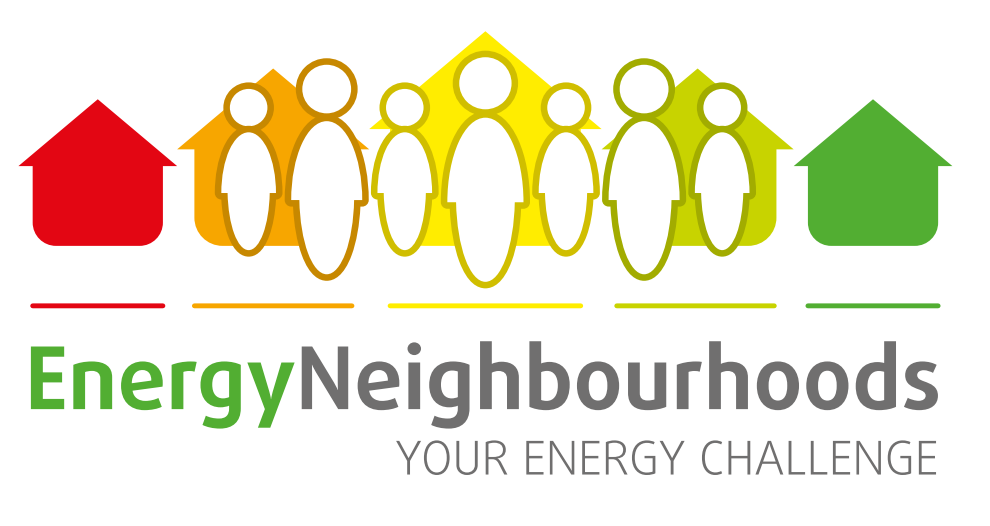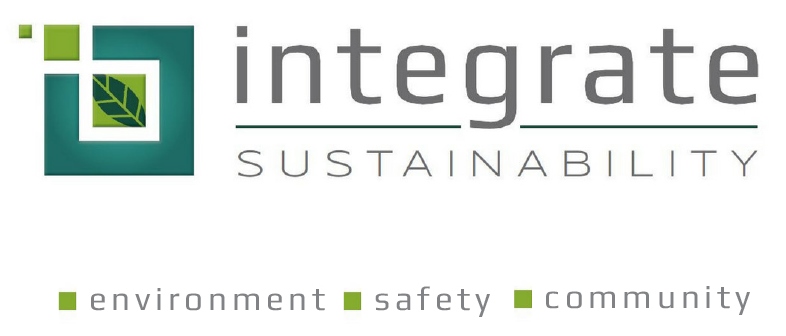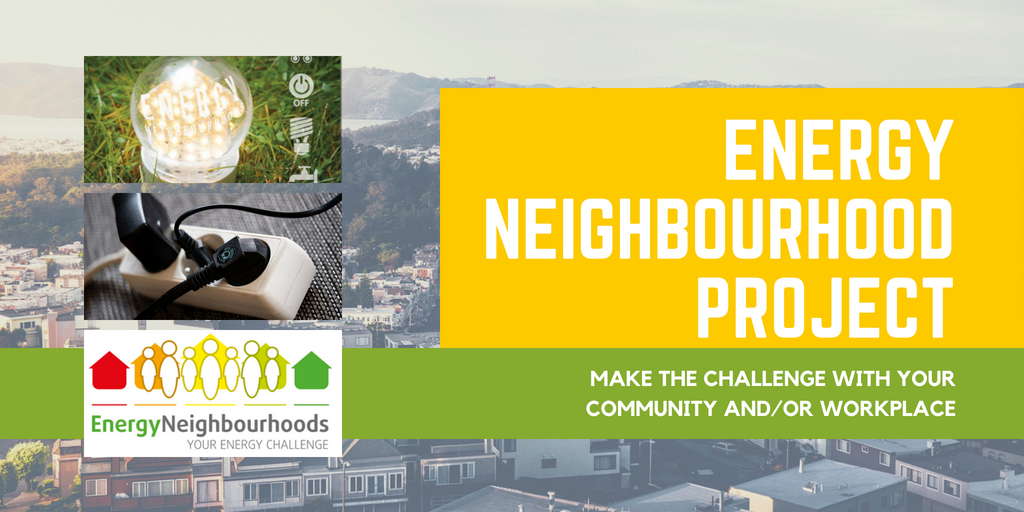Samantha Mickan – Environmental Specialist
The Energy Neighbourhood project was an idea developed in Belgium to bring the ‘Kyoto protocol’ closer to the people in their living rooms by organising a bet between the community and their citizens to save at least 8% of energy during 6 months heating period through simple and cost effective measures. Almost 6000 households from Belgium, England, Ireland, Spain, Italy, Bulgaria, Sweden, France and Germany took up the Energy Neighbourhoods challenge to show that it is possible to have a large impact on energy use and climate protection while saving money. As the project was such a big success, Energy Neighbourhoods2 was held in the following year gaining even more support and participants.
The Idea
The approach combined a competition on local, national and EU level with 8 to 12 households forming a team, the ‘energy neighbourhood’ and competing with other neighbourhoods in saving energy and winning the bet offered by the cities. If they save at least 8% of energy compared to the previous heating period, the local governing body awards them a prize.

Energy Neigborhood Brochure
Throughout the process, expert knowledge was provided to all participating households and information events were organised. Participating households were supported by specially trained “Energy Masters” and volunteers from the neighbourhood motivated their teams, supervised data monitoring and provide project material. The cities together with the project partners refereed and supported their competing citizens on how to save energy, organising get together and information events and ensuring that the team followed the rules.
Energy Neighbouhoods2 held a large scale campaign over a 30 month period to raise the awareness to a broad public audience, using traditional and new social media. Participants themselves shared their conservation experiences using peer-to-peer communication to reach a broad European public and to raise awareness at consumer level.
The project’s main aims were to:
- Develop a user-friendly energy monitoring web tool,
- Make householders aware of their carbon footprint,
- Raise awareness of energy efficient products and climate protection policies,
- Save at least 9% energy in each neighbourhood,
- Include an evaluation phase resulting in improved strategies and tools for new regions, and
- Provide information on CO2 friendly consumer choices.
The Outcome
After 2 rounds of promoting energy savings in households all the energy consumption data of the participants that was entered into the online tool was checked and evaluated by the project partners. The achievements of the Energy Neighbourhoods projects were significant as it reached:
- 16 partners in 16 countries

- 1400 neighbourhoods/communities across Europe
- 14,500 European households
- On average households made energy savings of 10%
- A total of 5,661,872 kWh of energy was saved across Europe, and
- 2,425 tonnes of carbon dioxide was saved
The way forward
Each household started saving energy in very basic ways, they started by turning off appliances rather than using standby, applied temperature control to water heating, room heating/cooling and swapped to low energy light bulbs. Round 2 then saw a focus on energy saving through these methods but also added transport and food, the full list can be found at
http://tippenergy.ie/wp-content/uploads/Less-is-best.pdf The factors of success for this project were linked to the project being a group action, letting people be part of a team and being able to contribute to the overall performance and outcome. Having the support and guidance at hand of the energy masters, local governments and coordinators, whilst having direct control of the online tool for competitors to see in real time their usage and their savings. The competitive nature of the project was highlighted as a reason for the success as it between different groups, on a national and a European level, which created a positive and fresh image with a realistic chance to win. The experience shows: Everybody can save energy, it is easier than expected and often the main trick is to keep up the motivation.
Consider implementing a similar competition at work or within your own social group. If you or your company need assistance in implementing a similar initiative or just want to reduce your energy consumption or carbon footprint, please contact Integrate Sustainability on 08 9468 0338 or
enquiries@integratesustainability.com.au.
For more information or a more in-depth coverage of the projects please visit the links below.
https://ec.europa.eu/energy/intelligent/projects/en/projects/en2
https://ec.europa.eu/energy/intelligent/projects/sites/iee-projects/files/projects/documents/energy_neighbourhood_energy_neighbourhoods_brochure_en.pdf
https://ec.europa.eu/energy/intelligent/projects/sites/iee-projects/files/projects/documents/en2_final_brochure_en.pdf
https://ec.europa.eu/energy/intelligent/projects/sites/iee-projects/files/projects/documents/en2_synthesis_report_on_key_achievements_en.pdf
Download a copy of this insight.





